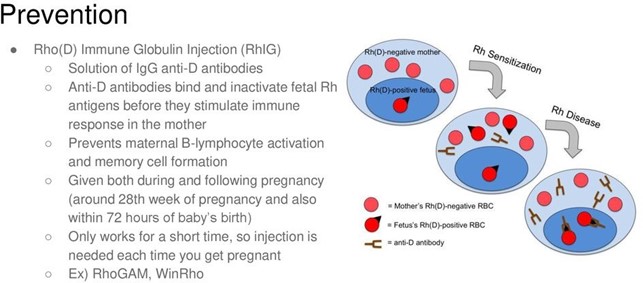HESI RN Nursing Specialty
HESI RN Nursing Specialty ( 78 Questions)
A postpartum client who is Rh-negative refuses to receive Rho(D) immune globulin after the delivery of an infant who is Rh-positive. Which information should the practical nurse (PN) provide this client?
When a Rh-negative mother gives birth to a Rh-positive baby, there is a risk that the mother's immune system will develop antibodies against the Rh-positive factor. These antibodies can cross the placenta in future pregnancies and atack the Rh-positive fetus, leading to hemolytic disease of the newborn. Rho(D) immune globulin is given after delivery to prevent the formation of these antibodies. The PN should explain this to the client and encourage her to reconsider her refusal of the treatment. Answers A, B, and C are incorrect and do not provide accurate information.

When a Rh-negative mother gives birth to a Rh-positive baby, there is a risk that the mother's immune system will develop antibodies against the Rh-positive factor. These antibodies can cross the placenta in future pregnancies and atack the Rh-positive fetus, leading to hemolytic disease of the newborn. Rho(D) immune globulin is given after delivery to prevent the formation of these antibodies. The PN should explain this to the client and encourage her to reconsider her refusal of the treatment. Answers A, B, and C are incorrect and do not provide accurate information.

